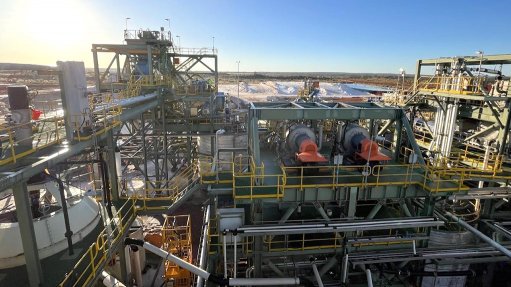
After gaining shareholder approval for the acquisition of the Beyondie sulphate of potash (SoP) project, in Western Australia, ASX-listed Reward Minerals is seeking to raise about A$22.8-million through an entitlement shares offer.
The capital raise will allow for completion of the Beyondie transaction and for the company to start research and development activities on site, including mining studies and pilot recovery trials.
Reward aims to develop an operational strategy for Beyondie in the near term – the company believes the current flowsheet and unit operations can be simplified to enable significant cash flow generation from production at the site.
The Beyondie project has all infrastructure already in place for production, as well as numerous granted mining and exploration licences.
Reward concluded a share sale agreement with the owners of the Beyondie project, Kalium Lakes, in November.
The share offer involves two new shares for every one share held on the record date at an issue price of A$0.05 apiece, together with one free-attaching quoted option, which is exercisable at A$0.10 for three years from the issue date.
Notably, the offer is partially underwritten for A$16-million by RM Corporate Finance.
Reward explains that Reward may underwrite the entitlement offer for a higher amount up to the full subscription amount, should it be able to secure sub-underwriting commitments for additional underwriting; however, this is not guaranteed.
The eligible shareholders for the offer are those whose registered address is in Australia or New Zealand.
Reward expects the capital raise to be completed by January 30.
Meanwhile, the company continues to advance the Kumpupintil Lake and Camarvon potash projects, in Western Australia.
Reward says the market outlook for SoP remains attractive, driven by population growth, restricted supply, low-chloride fertilizer demand and increased usage for higher value crops driving strong prices expected to continue in coming years.